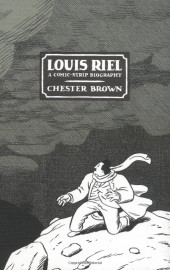

They not only have a responsibility to the historical record, but perhaps more importantly, they are beholden to the attentions of their readers.

See, the thing of it is: biographers are every bit as much storytellers as Dickens or Gaiman or Hemmingway or Stoppard. And biographers, even if they had access to such an impossible (barring the metanatural) source, probably wouldn’t wish to make use of it for fear of losing some of the more outrageous possibilities in the unveiling of their respective subjects. Oh, certainly in the abstract sense, there could exist some ultimate record of events free from the colouring of memory, vanity, or nostalgia, but that would require an impartial, omniscient observer. In my response to Christopher Frayling’s biography of Sergio Leone, I wrote: The biographer is never simply representing What Happened, but instead puts forth a version of what happened-a story that conforms more or less plausibly with the ultimately unknowable way history actually spun itself out. Ignoring the matter of interpretation, the biographer still has to grapple with the reality that there are not really any such things as brute facts. Biography is always a tricky thing to pull off well.


 0 kommentar(er)
0 kommentar(er)
